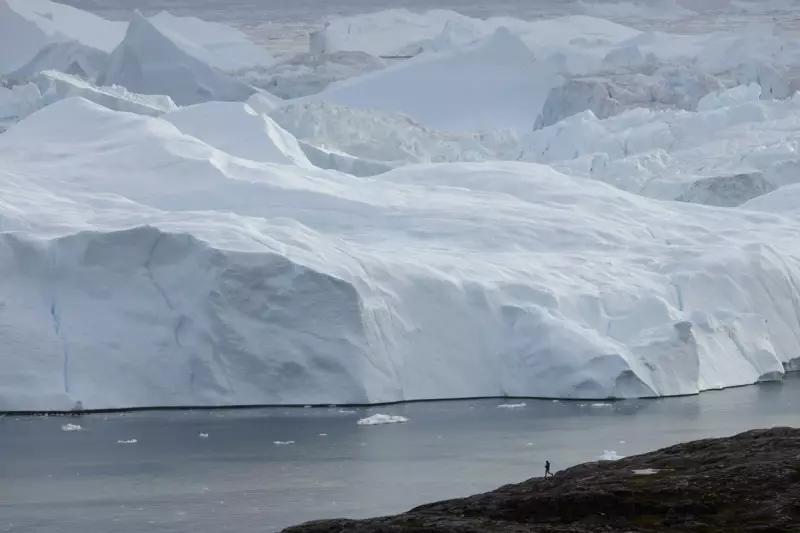
A revolutionary new study is rewriting the history of Greenland's ice sheet, challenging the long-standing scientific consensus that it nearly vanished during a warm period in Earth's past. The findings, published in the journal Science, suggest the ice sheet is far more resilient than previously thought, but also carry a stark warning for our current climate crisis.
The Eemian Enigma: A Warmer World
For decades, scientists have pointed to the Last Interglacial period, known as the Eemian, which occurred between 115,000 and 130,000 years ago. This era saw global temperatures rise significantly, making it a crucial case study for understanding how ice sheets behave in a warmer world. The prevailing theory was that Greenland's ice sheet contributed several metres to sea-level rise during this time.
However, this new analysis of material from a long-lost ice core, frozen beneath a US military base since the 1960s, tells a different story. The core contains perfectly preserved sediment and rock from beneath the ice sheet, offering a unique frozen snapshot of history.
A Frozen Time Capsule from the Cold War
The key to this discovery lay in a secret Cold War mission. In 1966, US Army scientists drilled through the ice sheet at Camp Century in northwest Greenland, a site disguised as a polar research station but actually a covert nuclear missile launch site. The ice core they extracted was studied, but the sediment at its base was largely forgotten, stored in a freezer in Denmark.
'We now have direct evidence that the ice sheet was present much longer than we thought,' said Dr Andrew Christ, a lead author of the study from the University of Vermont. 'It didn't fully melt away during the Eemian. This changes our fundamental understanding of Greenland's past.'
Implications for Our Future
While the discovery suggests the ice sheet is more durable, the researchers were quick to caution against complacency. The Eemian warming was driven by natural changes in Earth's orbit. Today, the rate of warming caused by human greenhouse gas emissions is drastically faster.
'If we continue with high carbon emissions, we will likely cause warming that far exceeds what happened in the Eemian,' warned Dr. Christ. 'The ice sheet might be resilient, but it is not invincible to the unprecedented pace of modern climate change.'
This research provides a more accurate baseline for the ice sheet's behaviour, which will help scientists improve the computer models used to predict future sea-level rise. Understanding its past resilience is key to forecasting its future vulnerability.





